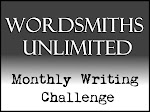70% of it is sound advice. Neophytes should adhere to it and learn.
10% of it is nothing more than a caution.
10% of it is a purist's viewpoint of classical storytelling, which continually evolves. Valid points all, but I doubt Aristotle would enjoy Bradbury.
5% pisses off every capable writer who ever put pen to paper.
5% is his opinion that plot is overrated.
This last 5% is my sticking point. Plot is THE thing upon which everything else is attached. Without plot, theme has no meaning, characters wallow in centrism, and the author's vision has no voice. Plot may be secondary to a thousand other expressions, but it is the device used to display conflict, or the lack of it.
CHARACTER drives us to read further; PLOT allows character to hang his wardrobe on a peg. Otherwise, it is poetry. Poetry is laudible and the penultimate expression of human thought, but it is not storytelling. Poetry is rare and precious because so few of us can do it justice. Plot is necesssary for the fictional narrative voice.
Who am I to dispute Aristotle? Nobody but another in a long line of thinkers who acknowldege his greatness, but also question it.
Joe is right. And wrong. I have a feeling he would agree with me. Like I have said before, learn your ABC's before you break the rules. However, I get the feeling Joe and Aristotle don't believe in breaking those rules. I believe in breaking rules, as long as you have learned how to abide by those rules in the first place. Otherwise my argument is for naught.
Acknowledge the wisdom of others and the passion of your own art. Then question both.

2 comments:
THANK YOU!!!
I'm still learning "A," so it would seem. The "B"s and C"s are still to come. I'll take all the guidance I can get.
I am in a lot of agreement with you.
I just want to make certain that my jab at 'plot' is in no way associated with the Narrative Ethic. It was one of my many side points that distract from what I'm realy trying to say. I don't remember what Aristotle had to say on plot or if he said anything on plot. My statement goes back to my college classes where I was often critised for lack of plot.
Actually, I like the definition you are using for 'plot'. Like you say, without plot a chracter can't hang up a coat. So plot = action. Well . . . with that definition, I have plenty of plot and I'm all for plot. For some reason though, I'm thinking that plot should be defined as something more than just action . . . but you know what - I like leaving it at just action. I'm going to think about plot more . . .
Also, I know it can be frustrating that stories can be analyzed by such simple questions. I don't mean to say those are the only questions to ask of a story, but those are the most simple and some of the most powerful questions to ask. Every story, book, movie play, television show anything - all answer those questions. Hell, I just finished reading Pynchon's Against the Day and it took me a long time to be able those questions, but I was still able to do it.
Once you take a story and answer the simple questions, you ask what does this say about the world the author is presenting. I should have written you have to follow that question up with "why?" This keeps the reader and writer accountable. You have to pull the exact words that author chose that makes you think what the story is about. The Narrative Ethic keeps stories accountable and interesting.
crap - I'm going on and on here. Can you guess that my problem with august's short story is that I'm way over the word limit. . .
I also agree about breaking conventions. However, in order to bend a rule, you have to know what it is and these aren't the only rules there are. There are millions of conventions and rules to be bent and broken (including plot - I swear I'm now going to write a story where people just sit around and do nothing! but how could i follow the narrative ethic? OK so plot isn't overrated!)
so i've proven train of thought isn't a good way to write comments. You should hear me try to leave voicemails.
Post a Comment